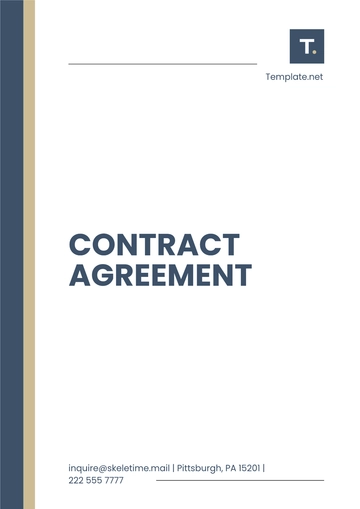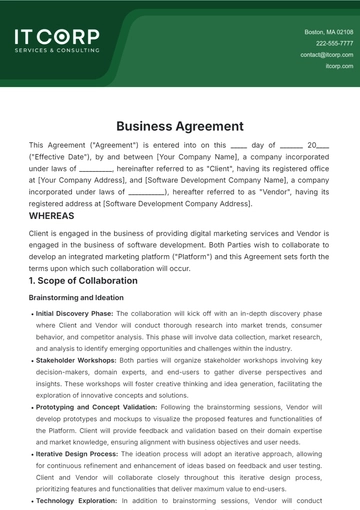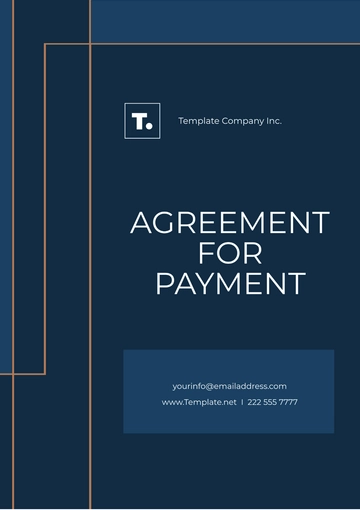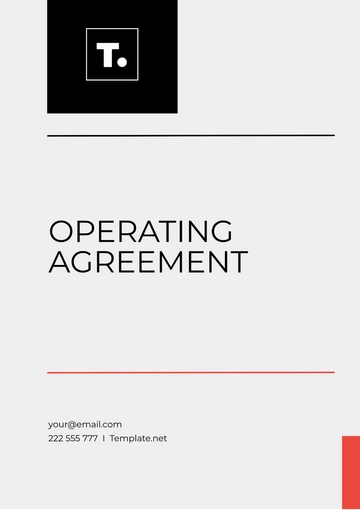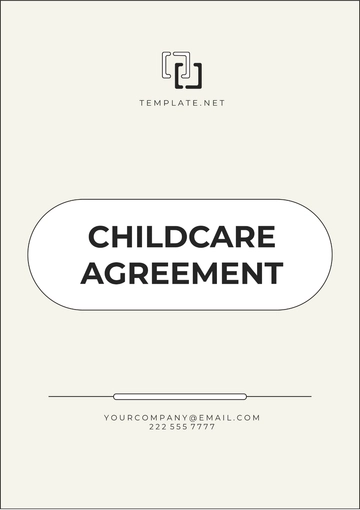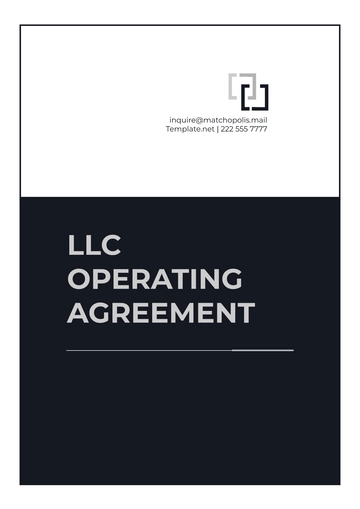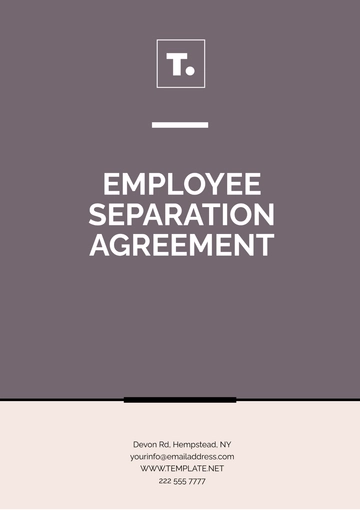Free Legal Case Client Agreement
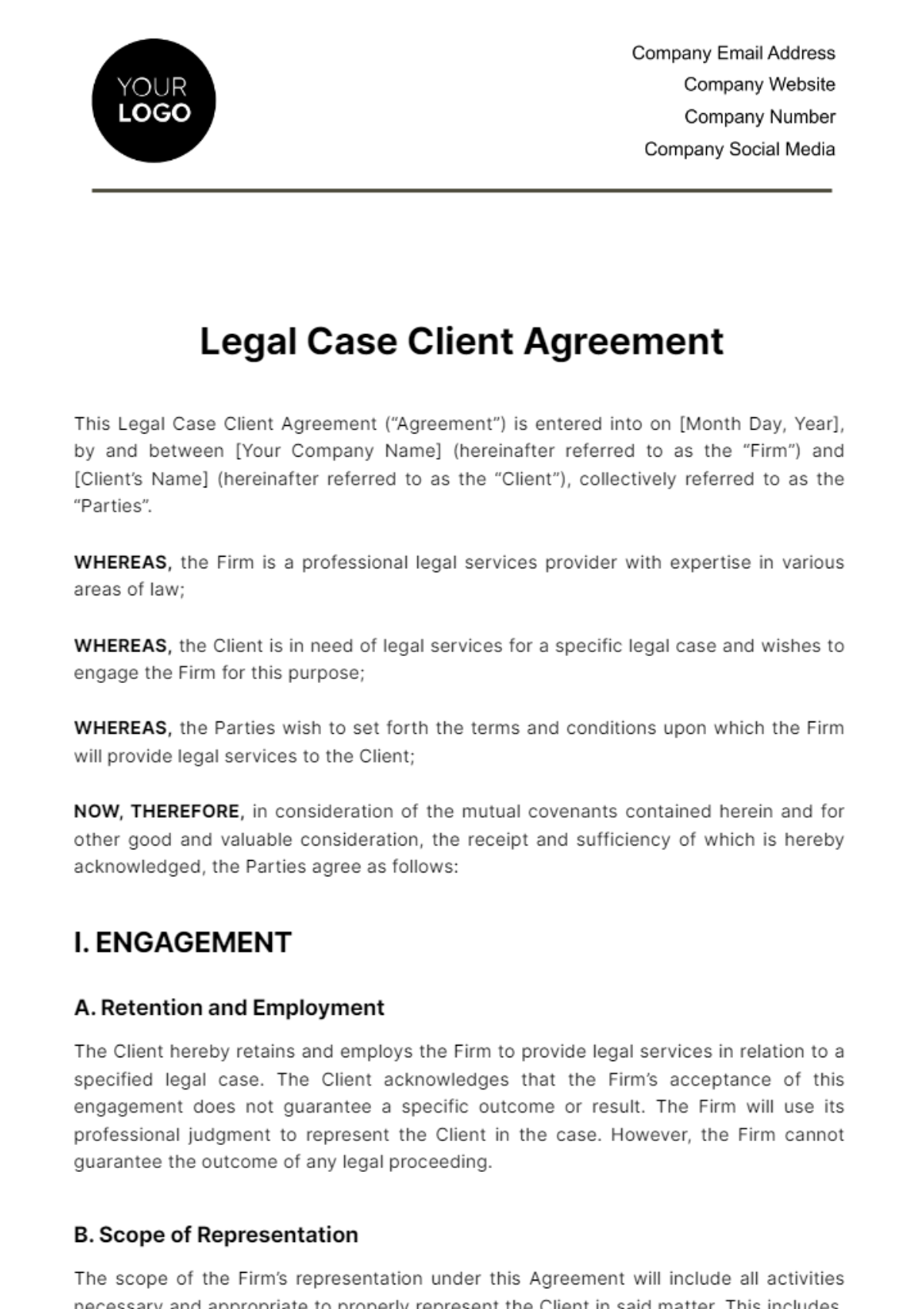
This Legal Case Client Agreement (“Agreement”) is entered into on [Month Day, Year], by and between [Your Company Name] (hereinafter referred to as the “Firm”) and [Client’s Name] (hereinafter referred to as the “Client”), collectively referred to as the “Parties”.
WHEREAS, the Firm is a professional legal services provider with expertise in various areas of law;
WHEREAS, the Client is in need of legal services for a specific legal case and wishes to engage the Firm for this purpose;
WHEREAS, the Parties wish to set forth the terms and conditions upon which the Firm will provide legal services to the Client;
NOW, THEREFORE, in consideration of the mutual covenants contained herein and for other good and valuable consideration, the receipt and sufficiency of which is hereby acknowledged, the Parties agree as follows:
I. ENGAGEMENT
A. Retention and Employment
The Client hereby retains and employs the Firm to provide legal services in relation to a specified legal case. The Client acknowledges that the Firm’s acceptance of this engagement does not guarantee a specific outcome or result. The Firm will use its professional judgment to represent the Client in the case. However, the Firm cannot guarantee the outcome of any legal proceeding.
B. Scope of Representation
The scope of the Firm’s representation under this Agreement will include all activities necessary and appropriate to properly represent the Client in said matter. This includes, but is not limited to:
Legal Research: The Firm will conduct comprehensive legal research to understand all the relevant laws, regulations, and legal precedents that may impact the Client’s case.
Preparation of Pleadings: The Firm will prepare all necessary legal documents, such as complaints, motions, and briefs, required for the Client’s case.
Negotiations: The Firm will negotiate with the opposing party on behalf of the Client, with the aim of reaching a favorable settlement.
Courtroom Representation: If the case goes to trial, the Firm will represent the Client in court, presenting evidence and arguments to support the Client’s position.
C. Client Communication
The Firm will keep the Client informed about the progress of the case and will strive to work diligently to resolve the legal matter as efficiently and effectively as possible. This includes:
Regular Updates: The Firm will provide the Client with regular updates on the status of the case.
Explanation of Legal Strategies: The Firm will explain the legal strategies being used and why they are being pursued.
Prompt Responses: The Firm will respond promptly to any inquiries or concerns the Client may have.
II. FEES AND EXPENSES
A. Fees
The Firm will charge for Services on an [hourly] basis. For example, if the Firm’s hourly rate is $[200], and the Firm works [5] hours on the Client’s case, the Client will be billed $[1,000]. The total cost to the Client may vary based on the complexity and duration of the case. The Firm will provide the Client with an estimate of the fees at the outset and will update the Client if there are any significant changes to the estimate.
B. Expenses
The Client will also be responsible for paying all costs and expenses related to the case. This includes, but is not limited to:
Filing Fees: These are fees required by the court to file certain documents.
Court Costs: These may include fees for services such as process servers or court reporters.
Third-Party Services: These may include fees for expert witnesses, private investigators, or other professionals whose services may be required for the case.
C. Billing and Payment
The Firm will send the Client a detailed invoice on a regular basis, outlining the services rendered and expenses incurred. The Client agrees to pay the invoice within a specified period after receipt.
D. Dispute Resolution
In the event of a dispute over fees or expenses, the Parties agree to:
Negotiate in good faith to resolve the issue.
If they are unable to reach a resolution, they may choose to involve a neutral third party, such as a mediator or arbitrator.
III. CONFIDENTIALITY
A. Access to Confidential Information
In the course of providing Services, the Firm may have access to confidential information. This may include, but is not limited to:
Personal Information: This could include the Client’s name, address, contact details, and other personally identifiable information. The Firm understands the importance of protecting such personal information in compliance with applicable privacy laws and regulations.
Case Information: This could include details about the legal case that the Firm is handling for the Client. Such information could be sensitive and may have significant implications for the Client’s legal position. The Firm recognizes the need to handle such information with utmost care.
Other Sensitive Information: This could include any other sensitive information that the Firm comes across in the course of providing its Services. This might encompass proprietary business information, financial data, strategic plans, intellectual property, and other similar types of information.
B. Confidentiality Obligation
The Firm agrees to keep all such information strictly confidential. The Firm will not disclose it to any third parties, except as required by law or as necessary to perform the Services. The Firm will take all reasonable measures to safeguard the confidentiality of the information, including:
Implementing Appropriate Security Measures: The Firm will implement and maintain appropriate physical and electronic security measures to protect the confidential information from unauthorized access, use, disclosure, alteration, or destruction.
Ensuring Confidentiality Obligations are Upheld by Personnel: The Firm will ensure that all its personnel who have access to the confidential information are aware of its confidential nature and are bound by confidentiality obligations no less stringent than those set out in this Agreement.
Regular Review of Confidentiality Policies and Procedures: The Firm will regularly review and update its confidentiality policies and procedures to ensure they remain effective and compliant with applicable laws and best practices.
C. Breach of Confidentiality
In the event of a breach of confidentiality, the Firm will:
Promptly Notify the Client: The Firm will promptly notify the Client of any breach or suspected breach of confidentiality. The notification will include details of the breach, the type of information involved, the identity of the unauthorized recipient (if known), and the steps taken by the Firm to mitigate the impact of the breach.
Take Steps to Prevent Further Breaches: The Firm will take immediate steps to prevent further breaches, including investigating the cause of the breach, rectifying any security vulnerabilities that may have led to the breach, and reinforcing its confidentiality policies and procedures.
Cooperate with Investigations or Legal Proceedings: If the breach leads to any investigations or legal proceedings, the Firm will cooperate fully, including providing any necessary assistance or information.
IV. TERMINATION
A. Termination Rights
Either the Client or the Firm may terminate this Agreement at any time by providing written notice to the other party. The termination process includes:
Providing Notice: The party wishing to terminate the Agreement must provide written notice to the other party. This notice should specify the effective date of termination and the reasons for termination, if applicable.
Acknowledgment of Notice: Upon receipt of the termination notice, the other party should acknowledge receipt and confirm the understanding of the contents of the notice.
B. Obligations Upon Termination
Upon termination, the Client will be obligated to:
Pay for Services: The Client will be required to pay for all Services rendered up to the date of termination. This ensures that the Firm is compensated for the work it has already performed.
Reimburse Expenses: The Client will also be responsible for reimbursing any expenses that the Firm has incurred in relation to the Client’s case up to the date of termination.
C. Return of Property
Upon termination, the Firm will:
Return Client Documents and Property: The Firm will promptly return all Client documents and property. This includes any physical or electronic documents, files, or other materials that the Firm has received from the Client or created on behalf of the Client during the course of the Agreement.
Cease Using Client Information: The Firm will cease using any Client confidential information and will take reasonable steps to remove such information from its systems.
D. Survival of Certain Provisions
Certain provisions of this Agreement will continue to apply even after the Agreement has been terminated. These may include the Firm’s obligation to maintain the confidentiality of the Client’s information will continue even after the termination of the Agreement.
E. Effect of Termination
Upon termination of this Agreement:
All rights and obligations under this Agreement will cease, except those rights and obligations that by their nature should survive the termination of this Agreement (such as confidentiality, indemnification, and payment obligations).
The Firm will cease all work on the Client’s legal case, except as otherwise agreed by the Parties or as required by ethical rules governing attorneys.
V. GOVERNING LAW
A. Governing Law
This Agreement will be governed by and construed in accordance with the laws of the State of [State Name]. This means that any disputes or legal proceedings related to this Agreement will be subject to the laws of this jurisdiction. The choice of law can have a significant impact on the interpretation and enforcement of the Agreement, and the Parties have chosen the laws of [State Name] as the most appropriate and relevant for this Agreement.
B. Jurisdiction and Venue
Any legal action or proceedings relating to this Agreement will be brought in the courts located in [State Name]. By entering into this Agreement, the Parties consent to the jurisdiction of these courts and agree that these courts are a convenient forum for resolving any disputes related to this Agreement.
C. Dispute Resolution
Any disputes arising out of or related to this Agreement will be resolved through the following process:
Negotiation: Initially, the Parties will attempt to resolve the dispute through good faith negotiations. This involves open and honest communication between the Parties to understand each other’s positions and find a mutually acceptable solution.
Mediation: If the Parties are unable to resolve the dispute through negotiation, they agree to engage a neutral third-party mediator to facilitate further discussions and help the Parties reach an agreement.
Litigation: If the Parties are still unable to resolve the dispute through negotiation or mediation, they may choose to resolve the dispute through litigation in the agreed-upon courts.
D. Enforcement of Agreement
The Parties agree that if one Party breaches this Agreement, the other Party has the right to take legal action to enforce the Agreement. This may involve seeking a court order to compel the breaching Party to comply with the Agreement or seeking damages for any harm caused by the breach.
E. Legal Remedies
The Parties acknowledge and agree that a breach of this Agreement may cause irreparable harm for which monetary damages may not be an adequate remedy. Therefore, in addition to any other remedies available at law or in equity, the non-breaching Party will be entitled to seek injunctive relief to prevent any further breaches of the Agreement and to compel the breaching Party to comply with its obligations under the Agreement.
VI. ENTIRE AGREEMENT AND AMENDMENT
A. Entire Agreement
This Agreement constitutes the entire agreement between the Parties with respect to the subject matter hereof and supersedes all prior discussions, negotiations, and agreement, whether oral or written.
B. Amendment
This Agreement may only be amended or modified by a written document executed by both the Firm and the Client. Any changes to the Agreement must be agreed upon by both Parties.
C. Severability
If any provision of this Agreement is held to be invalid, illegal, or unenforceable, the remaining provisions of this Agreement will remain in full force and effect.
D. Waiver
No waiver of any term or right in this Agreement shall be effective unless in writing, signed by the waiving party. The failure of either party to enforce any provision of this Agreement shall not be construed as a waiver or modification of such provision, or impairment of its right to enforce such provision or any other provision in this Agreement thereafter.
VII. SIGNATURES
By affixing signatures below, the Parties acknowledge that they have read, understood, and agreed to the terms and conditions outlined in this Agreement. They further affirm that they enter into this Agreement voluntarily and with full knowledge of its effect. The Parties understand that this Agreement constitutes a legally binding contract enforceable by law.
[Signature]
[Legal Representative Name]
[Your Company Name]
Firm
Date: [Month Day, Year]
[Signature]
[Client's Name]
Client
Date: [Month Day, Year]
- 100% Customizable, free editor
- Access 1 Million+ Templates, photo’s & graphics
- Download or share as a template
- Click and replace photos, graphics, text, backgrounds
- Resize, crop, AI write & more
- Access advanced editor
Foster transparent client relationships with ease using the Legal Case Client Agreement Template! Fully editable through the AI Editor Tool, this agreement ensures seamless customization for client engagement. Trust in Template.net to provide a professional framework for legal client agreements, facilitating effective collaboration. Make it easy! Grab your customizable copy!
You may also like
- Lease Agreement
- Non Compete Agreement
- Rental Agreement
- Prenuptial Agreement
- Non Disclosure Agreement
- Operating Agreement
- Hold Harmless Agreement
- LLC Operating Agreement
- Arbitration Agreement
- Purchase Agreement
- Residential Lease Agreement
- Executive Agreement
- Confidentiality Agreement
- Contractor Agreement
- Partnership Agreement
- Postnuptial Agreement
- Collective Bargaining Agreement
- Loan Agreement
- Roommate Agreement
- Commercial Lease Agreement
- Separation Agreement
- Cohabitation Agreement
- Room Rental Agreement
- Child Custody Agreement
- Employee Agreement
- License Agreements
- Settlement Agreement
- Joint Venture Agreement
- Indemnity Agreement
- Subordination Agreement
- Sales Agreement
- Agreements Between Two Parties
- Business Agreement
- Real Estate Agreement
- HR Agreement
- Service Agreement
- Property Agreement
- Agreement Letter
- Restaurant Agreement
- Construction Agreement
- Finance Agreement
- Marketing Agreement
- Payment Agreement
- Investment Agreement
- Management Agreement
- Nonprofit Agreement
- Software Agreement
- Startup Agreement
- Agency Agreement
- Copyright Agreement
- Collaboration Agreement
- Reseller Agreement
- Car Rental Agreement
- Cleaning Services Agreement
- Consultant Agreement
- Deed Agreement
- Car Agreement
- Equipment Agreement
- Shares Agreement
- Data Sharing Agreement
- Advertising Agreement
- School Agreement
- Franchise Agreement
- Event Agreement
- Travel Agency Agreement
- Vehicle Agreement
- Board Resolution Agreement
- Land Agreement
- Binding Agreement
- Tenancy Agreement
- Exclusive Agreement
- Development Agreement
- Assignment Agreement
- Design Agreement
- Equity Agreement
- Mortgage Agreement
- Purchase and Sale Agreement
- Shareholder Agreement
- Vendor Agreement
- Royalty Agreement
- Vehicle Lease Agreement
- Hotel Agreement
- Tenant Agreement
- Artist Agreement
- Commission Agreement
- Consignment Agreement
- Debt Agreement
- Recruitment Agreement
- Training Agreement
- Transfer Agreement
- Apprenticeship Agreement
- IT and Software Agreement
- Referral Agreement
- Resolution Agreement
- Waiver Agreement
- Consent Agreement
- Partner Agreement
- Social Media Agreement
- Customer Agreement
- Credit Agreement
- Supply Agreement
- Agent Agreement
- Brand Agreement
- Law Firm Agreement
- Maintenance Agreement
- Mutual Agreement
- Retail Agreement
- Deposit Agreement
- Land Purchase Agreement
- Nursing Home Agreement
- Supplier Agreement
- Buy Sell Agreement
- Child Support Agreement
- Landlord Agreement
- Payment Plan Agreement
- Release Agreement
- Research Agreement
- Sponsorship Agreement
- Buyout Agreement
- Equipment Rental Agreement
- Farm Agreement
- Manufacturing Agreement
- Strategic Agreement
- Termination of Lease Agreement
- Compliance Agreement
- Family Agreement
- Interior Design Agreement
- Ownership Agreement
- Residential Lease Agreement
- Retainer Agreement
- Trade Agreement
- University Agreement
- Broker Agreement
- Dissolution Agreement
- Funding Agreement
- Hosting Agreement
- Investor Agreement
- Memorandum of Agreement
- Advisory Agreement
- Affiliate Agreement
- Freelancer Agreement
- Grant Agreement
- Master Service Agreement
- Parking Agreement
- Subscription Agreement
- Trust Agreement
- Cancellation Agreement
- Horse Agreement
- Influencer Agreement
- Membership Agreement
- Vacation Rental Agreement
- Wholesale Agreement
- Author Agreement
- Distributor Agreement
- Exchange Agreement
- Food Agreement
- Guarantee Agreement
- Installment Agreement
- Internship Agreement
- Music Agreement
- Severance Agreement
- Software Development Agreement
- Storage Agreement
- Facility Agreement
- Intercompany Agreement
- Lending Agreement
- Lodger Agreement
- Outsourcing Services Agreement
- Usage Agreement
- Assurance Agreement
- Photography Agreement
- Profit Sharing Agreement
- Relationship Agreement
- Rent To Own Agreement
- Repayment Agreement
- Volunteer Agreement
- Co Parenting Agreement
- HVAC Agreement
- Lawn Care Agreement
- SAAS Agreement
- Work from Home Agreement
- Coaching Agreement
- Protection Agreement
- Security Agreement
- Repair Agreement
- Agreements License


